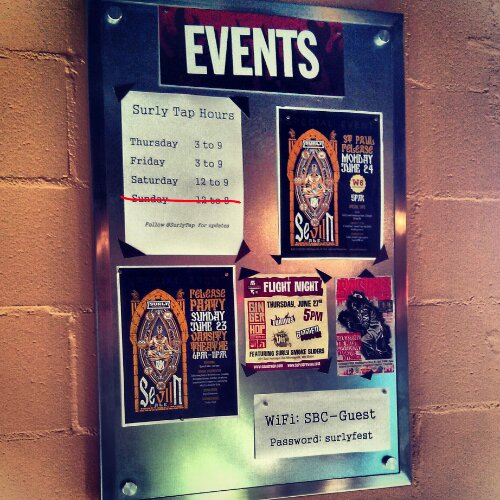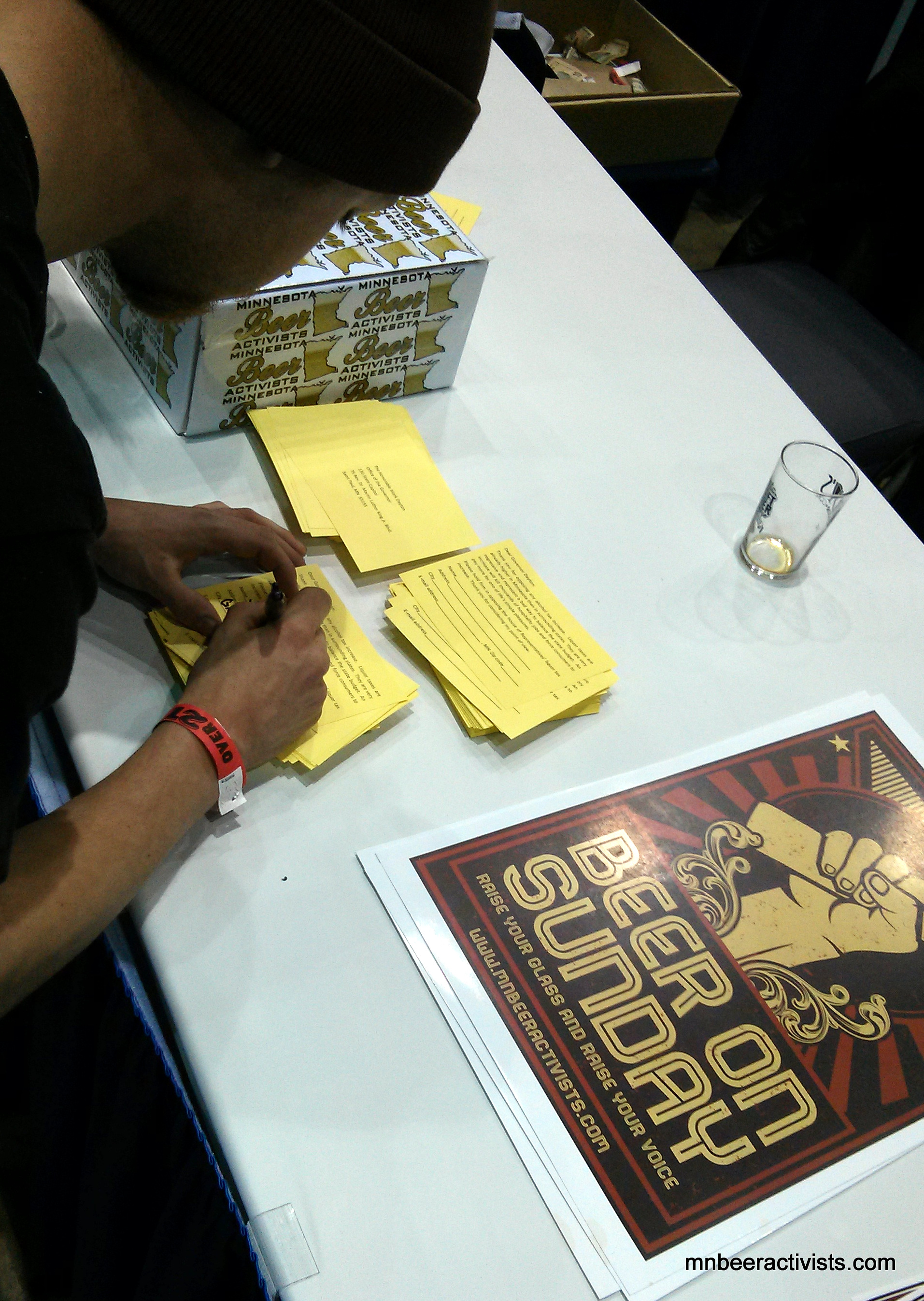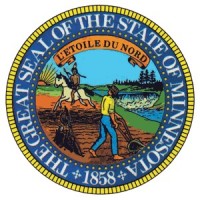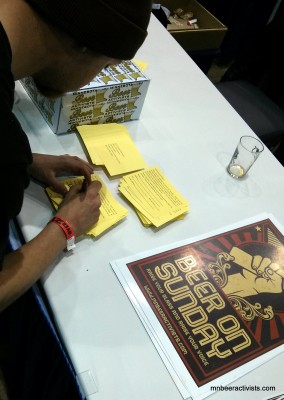Minnesota’s Legislature is considering a proposal to add deposit fees to nearly all bottles and cans purchased in Minnesota. The proposal would result in an additional $0.10/container, or $2.40 per case of beer. The amount may be refunded if consumers bring used bottles and cans to newly created redemption centers. The deposit fee is intended to create an incentive to increase the rate of recycling in Minnesota to 80%.
Scope of beverage containers with deposit
All alcoholic or a nonalcoholic drink intended for human consumption and packaged for sale in a redeemable beverage container including beer and other malt beverages, wine, distilled spirits regardless of dairy-derived content, carbonated and noncarbonated soft drinks, flavored and unflavored bottled water, fruit juice, and tea and coffee drinks regardless of dairy-derived content.
–Draft program design for a recycling refund program for beverage containers in Minnesota – MPCA
The proposed beverage container deposit fee is part of a recommended recycling program being proposed by the MPCA, as charged by the Minnesota Legislature during the 2013 legislative session.
The commissioner shall prepare and submit a report to the chairs and ranking minority members of the senate and house of representatives committees and divisions with jurisdiction over the environment and natural resources by January 15, 2014, with recommendations for a statewide recycling refund program for beverage containers that achieves an 80 percent recycling rate. In preparing the report, the commissioner shall consult with stakeholders, including retailers, collectors, recyclers, local governments, and consumers on options to increase the current recycling rate. An assessment of the financial impact of any recommended program shall be included in the report. All money deposited in the environmental fund for the metropolitan solid waste landfill fee in accordance with Minnesota Statutes, section 473.843, and not otherwise appropriated, is appropriated for the purposes of Minnesota Statutes, section 473.844. $315,000 the first year and $315,000 the second year are from the environmental fund for the electronic waste program under Minnesota Statutes, sections 115A.1310 to
115A.1330.
–H.F.No. 976
The new program will undoubtedly mean higher beverage prices, not only from the deposit, but from the additional costs of setting up and operating a new redemption system for bottles and cans. Higher beverage prices would hit low‐income families and seniors on fixed incomes the hardest. Minnesotans with the fewest resources would have to devote a greater percentage of their income to the new program. Additionally, higher beverage prices will mean people buy less, having a negative impact on producers, distributors, retailers. The reduction in beverage sales would ultimately cost Minnesota jobs.
Of course, the proposed price increase from the new Minnesota recycling program would affect each community differently. It is unclear how the program would co-exist with current recycling programs that are already well integrated in Minnesota municipalities. Curbside recycling program costs could change drastically without the revenue from the collection of cans and bottles.
Much like the current ban on Sunday liquor sales, retailers near state borders would see the greatest drop in revenue as shoppers make purchases across state lines. On-sale retailers would ultimately move away from bottles and cans and toward kegs in an effort to cut down on the upfront costs the and hassle of collecting and storing used beverage containers, not to mention getting them to a collection center.
You’d be hard-pressed to find anyone that is anti-recycling. And, an 80% recycling rate is admirable goal, but is the best course of action to place all the cost on consumers while putting existing recycling programs on a shelf? Many Minnesotan’s recycle already, the introduction programs like “single sort” recycling in Hennepin County, Minnesota’s recycling rate should continue to improve. Maybe Minnesota legislators need to make recycling more convenient, not more expensive.















